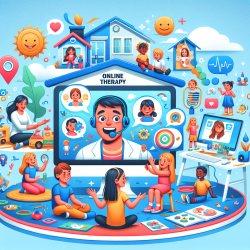As practitioners in the field of Speech Language Pathology (SLP), we constantly strive to create the best outcomes for children. While our primary focus is on improving communication skills, we must also consider broader environmental factors that can impact the well-being of the children we serve. The research article titled "Regulating the disposal of cigarette butts as toxic hazardous waste" by Richard L. Barnes presents a compelling case for integrating environmental stewardship into our professional practices.The article underscores the significant environmental hazards posed by cigarette butts, which comprise an estimated 30% of the total litter along US shorelines and waterways. These butts release toxic substances that can harm aquatic life and potentially pollute groundwater. This issue is not just a public health concern but also an environmental one, necessitating a collaborative approach involving manufacturers, retailers, consumers, and government agencies.Here are some actionable steps that SLP practitioners can take to integrate the findings from this research into their practice:
- Educational Outreach: Educate families and children about the environmental hazards of cigarette butt waste. Incorporate lessons on environmental responsibility into therapy sessions to foster a sense of stewardship in young minds.
- Advocacy: Advocate for stricter regulations on cigarette butt disposal in your community. Use data from the research to support your case and collaborate with local environmental groups to amplify your voice.
- Collaborative Efforts: Partner with schools to implement recycling and proper waste disposal programs. Encourage schools to place dedicated receptacles for cigarette butts and educate students on their proper use.
- Professional Development: Stay informed about environmental issues and their impact on public health. Attend workshops and conferences that focus on integrating environmental stewardship into healthcare practices.
- Data-Driven Decisions: Use data from environmental studies to inform your practice. By understanding the broader impact of environmental hazards, you can make more informed decisions that benefit the children you serve.
In conclusion, integrating environmental stewardship into our SLP practices not only helps protect the environment but also promotes healthier outcomes for the children we serve. By taking proactive steps to address environmental hazards, we can create a safer and healthier world for future generations.To read the original research paper, please follow this link:
Regulating the disposal of cigarette butts as toxic hazardous waste.










